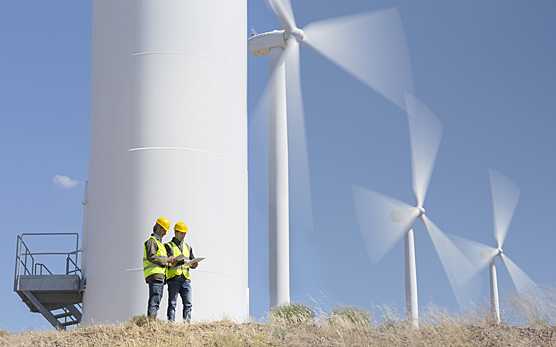
© AdobeStock
According to a study by the Finnish Environment Institute, in addition to emission reductions, investments in renewable energy have a significant positive impact on the regional economy. The more products and services related to energy investments can be sourced from within the region, the greater the impact on the regional economy.
The project Towards Carbon Neutral Municipalities and Regions - Canemure, coordinated by the Finnish Environment Institute, has for the first time calculated the employment and emission reduction potential of renewable energy in the regions of mainland Finland.
The study examined the potential of geothermal and air heat pumps, solar power and wind power until 2030. According to the study, the regional economic impact of renewable energy investments is greater when more products and services can be sourced from within the region.
The differences between regions in terms of employment impacts are not particularly large, but in the regions of Central Finland and Southwest Finland, for example, the links between the companies needed to implement investments proved strong, which increases the potential. On the other hand, employment effects flow to the rest of Finland from regions with smaller populations, such as Lapland and Central Ostrobothnia.
The impact of investments on emissions is greatest in areas with the greatest potential for renewable energy and the most favourable weather conditions. A solar power system with the same power reduces emissions from electricity consumption more in the south than in the north, and a wind turbine reduces emissions more on the windy coast than inland.
Investing in renewable energies supports municipal finances
Numerous municipalities have set ambitious emission reduction targets for themselves, many of which have set a deadline of 2030. More than 40% of emissions are generated in the energy sector, so investment in the deployment of renewable energy sources is still needed. Economic recovery after the coronavirus crisis creates new opportunities to implement the required investments in climate change mitigation also in municipalities.
“Investments in renewable energy are investments that achieve relatively risk-free returns well into the future. The economic savings and returns from investments can improve the provision of services, reduce the municipal tax rate or invest in fast telecommunications connections, for example,” says Researcher Santtu Karhinen from SYKE.
Positive economic impacts thus provide an opportunity to develop municipal attractiveness that allows municipalities to attract new residents and entrepreneurs to the region, which further promotes the state of the municipal economy. Efforts should therefore also be made to include indirect positive economic impacts reflected in the wider regional economy.
Municipalities have several ways to influence the promotion of renewable energies
For example, the municipality can promote wind power projects through zoning and proactive discussion of wind power concerns with local residents, summer residents, and entrepreneurs. The construction and operation of wind turbines provide local employment, and the property tax revenues of the power plants are also much needed boosts to the economy of small municipalities. For example, the average property tax revenue from one large (5 MW electricity generation capacity) wind farm is approximately EUR 34,000 per year.
The municipality can purchase solar power and heat pumps for its own properties. For municipal economy, it is profitable to install solar power systems in buildings where electricity consumption is high also in summer. The role of the municipality is also to lead by example and to communicate opportunities to local residents and businesses.
Further information
- Researcher Santtu Karhinen, SYKE, firstname.lastname@syke.fi, tel. +358 29 525 1889
- Senior Research Scientist Laura Saikku, SYKE, firstname.lastname@syke.fi, tel. +358 29 525 1140